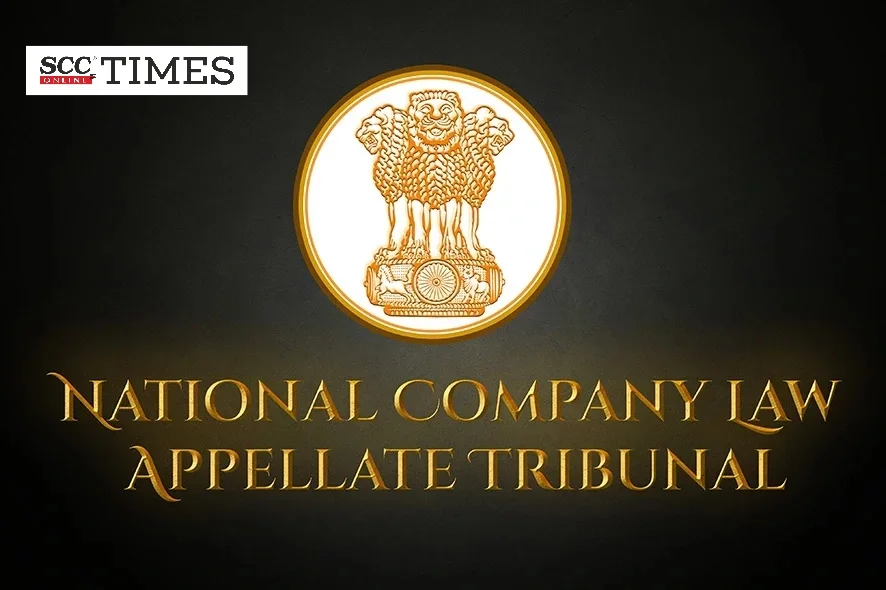National Company Law Appellate Tribunal: in an appeal challenging Adjudicating Authority’s order regarding validity of the security interest claimed by the appellant over the mortgaged property, a 3-member bench comprising of M. Venugopal,* Sharad Kumar Sharma, JJ. (Judicial Member) and Mr. Jatindranath Swain, (Technical Member), held that the appellant’s rights as a Secured Creditor should prevail over its classification as an unsecured financial creditor. The NCLAT emphasised on Secured Creditor’s right to choose the method of realizing their debt. The NCLAT held that Liquidator’s decision to classify the Appellant as an unsecured financial creditor was illegal and invalid. The NCLAT set aside the impugned order and directed recognition of the appellant’s valid mortgaged rights.
Factual Matrix
In the instant matter, the appellant, a financial creditor, filed an appeal, against the order dated 14-06-2023, passed by the NCLT, where the Adjudicating Authority observed that non-registration of a security interest would not vitiate debt recovery but would render the security interest void against the Liquidator. The appellant claimed a significant voting share based on collateral security provided by the Corporate Guarantor, M/s. Cape Engineers Pvt. Ltd. Despite the collateral, the respondent treated the appellant as an unsecured financial creditor due to non-registration of the security interest. The appellant sought to enforce its rights as a secured creditor under the Transfer of Property Act, 1882, and contested the respondent’s decision to treat it as unsecured. The respondent contended that the appellant failed to provide documents to establish its security interest, as required by Regulation 21 of the IBBI (Liquidation Process) Regulations, 2016.
Moot Point
-
Whether the appellant should be classified as a secured or unsecured financial creditor?
-
Whether non-registration of security interest affects the Appellant’s rights as a creditor?
Parties’ Contentions
The appellant contended that the appellant had significant collateral and should be recognized as a secured creditor. It was argued that the respondent’s decision to treat the appellant as unsecured disregards the legal validity of the collateral under the Transfer of Property Act, 1882. It was contended that appellant registered the security interest with CERSAI, albeit after the respondent’s decision. On the other hand, the respondent contended that the appellant failed to provide necessary documents to establish its security interest. It was asserted that non-registration of the security interest rendered the appellant an unsecured financial creditor. It was argued that the liquidator’s decision to treat the appellant as unsecured aligns with Regulation 21 of the IBBI (Liquidation Process) Regulations, 2016.
NCLAT’s Observation
The NCLAT noted that a secured creditor is not obligated to resort to its security and may rely upon it outside the winding-up proceedings. The NCLAT asserted that a secured creditor has the right to prefer a winding-up petition after obtaining a decree from the Debt Recovery Tribunal. The NCLAT opined that it is the duty of the adjudicating authority to consider the rights of a secured creditor to realize its security interest before the assets of the corporate debtor are handed over to the liquidator. The NCLAT noted that Sections 52 and 53 of the IBC provide options for secured creditors to either enforce their security interest or relinquish it and participate in the distribution of assets. The NCLAT emphasised on the legislative intent to grant secured creditors the choice to enforce their security interest independently of the liquidation process.
The NCLAT held that a Liquidator cannot compel a secured creditor to relinquish its security interest. The NCLAT stated that “the Liquidator is not to prefer an ‘Application’, praying for directions to the Secured Creditor, to respond to his request for relinquishment of Security Interest over the Assets of the Corporate Debtor to the Liquidation Estate. On receipt of such notification the Liquidator is to verify the same and permit those ‘Secured Creditors’, to exercise their right, under 52 of the I & B Code, 2016 if they find that they had ‘Security Interest’, over such ‘Assets’. To put it precisely, since the I&B Code, 2016 overrides the ‘SARFAESI Act’, 2002, the Liquidator ought not to prefer a petition, based on the ‘SARFAESI Act’, 2002.” The NCLAT held that Liquidator’s decision to classify the Appellant as an unsecured financial creditor was illegal and invalid.
The NCLAT opined that the appellant bank should be treated as a secured creditor, and its rights in holding a valid mortgage over the secured assets should be protected and held that the Liquidator’s action, based on non-registration of charge, contravened the appellant’s statutory rights. Based on the cumulative reading of relevant legal provisions and precedents, the NCLAT concluded that secured creditors have the discretion to choose the method of debt realization, either through their security interest or by participating in the distribution of assets during liquidation.
“Before winding up, each Creditor is free to pursue whatever enforcement measures are open to him in the absence of an Insolvency Proceeding, the Rule is that the ‘Race’ goes to the swiftest and the ‘Creditor’ initiating the early execution will have the first bite. In fact, the ‘Initiation of Insolvency’ puts an end to the race and requires that all the Creditors of the same class participate in the common pool, in proportion to the size of their admitted claims.”
NCLAT’s Decision
After considering the rights conferred by the Transfer of Property Act and IBC, the NCLAT held that the appellant’s rights as a Secured Creditor should prevail over its classification as an Unsecured Financial Creditor and Liquidator’s communication, denying the appellant’s security interest, deemed invalid. The NCLAT allowed the appeal, set aside the impugned order of the adjudicating authority, and directed that the appellant bank be treated as a secured creditor in the liquidation proceedings.
[Canara Bank v. S. Rajendran, 2024 SCC OnLine NCLAT 390, order dated 07-03-2024]
*Judgment by Justice M. Venugopal
Advocates who appeared in this case :
Mr. ML Ganesh, Counsel for the Appellant
Ms. Elamathi, Counsel for the Respondent







